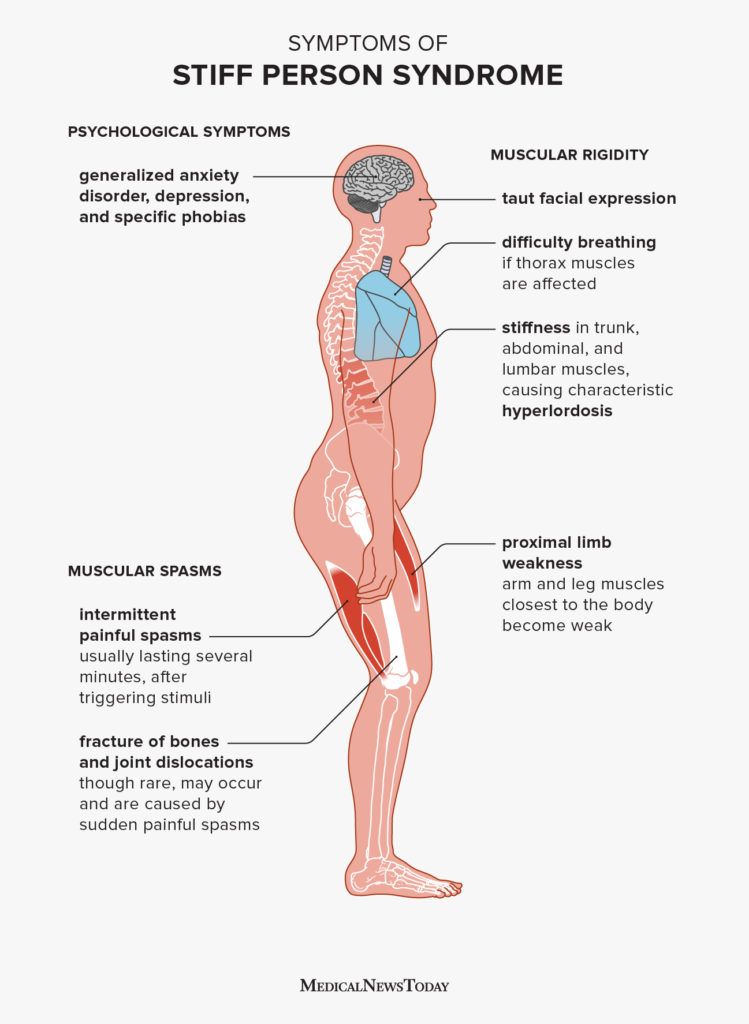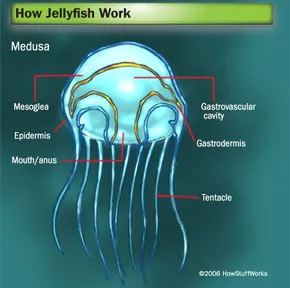We depend on our muscles everyday, it helps us pump blood and supports our movement. Although it is uncommon, there are syndrome that hinder the muscles. Stiff-person syndrome (SPS), a progressive neurological disorder, meaning it increasingly gets worse as time pasts. People with this condition experience stiffness in their abdomen, over time they suffer from spasm in muscles all across the body, especially in the legs. Walking becomes difficult and causes them to become prone to falls. Some don’t have enough time to catch themselves and so it may lead to severe injuries.
Stiff-person syndrome is usually associated to other autoimmune conditions. Most patients diagnosed with SPS also experience other autoimmune diseases such as, type 1 diabetes, and vitiligo. This implies that women are twice as likely to suffer from SPS than men. Women have two X chromosomes which increases the chances of mutation to happen.
Researchers have not pinpointed a direct cause of SPS but suggest that it is because of an autoimmune response gone wrong. One that Inflicts damage on nervous cells in the brain and spinal cord that governs your muscle movement. Researchers suggest that patients with SPS create antibodies that attack the glutamic acid decarboxylase (GAD). GAD is used to help muscle control. However, if you have GAD antibodies, it doesn’t mean you have SPS.
There is no cure for stiff-person syndrome, but there are some treatments or medicine that can slow the process. Oral diazepam is useful for improving several symptoms. The drug is mainly used to relieve anxiety and can be used to ease muscle spasms. Along with oral diazepam, baclofen is mainly used to help alleviate muscle spasms. Muscle relaxant drugs are highly encouraged and so is aqua therapy. Aqua therapy is used to strengthen muscles while reducing the stress on your joints.
Stiff-person syndrome is a complicated disorder that hasn’t been fully understood. The onset life expectancy of SPS is 6-28 years, it progressively gets worse over time. Although it is possible to slow the process by receiving prescriptions and partaking in therapy.
Related Stories:
https://www.ninds.nih.gov/health-information/disorders/stiff-person-syndrome
https://www.yalemedicine.org/conditions/stiff-person-syndrome#:~:text=Stiff%20Person%20Syndrome%20(SPS)%20is,rare%20disease%20is%20still%20unknown.
https://my.clevelandclinic.org/health/diseases/6076-stiff-person-syndrome
https://www.cuimc.columbia.edu/news/stiff-person-syndrome-not-what-you-think-it
https://www.nationalgeographic.com/science/article/stiff-person-syndrome-rare-disorder-causes-symptoms
Take Action:










